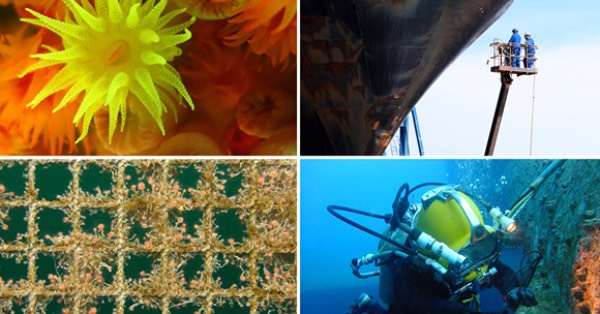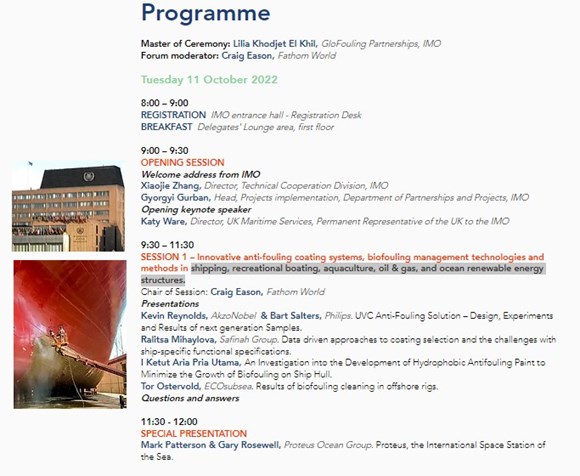The IMO-GloFouling Partnerships flagship conference on Biofouling Management is being held 12-14 October at IMO Headquarters in London.
It will bring together regulatory bodies, academia, leading scientific experts, technology developers, and representatives from maritime industries such as shipping, ports and harbours, aquaculture & fishing, offshore oil & gas, deep sea mining and ocean renewable energy, for a comprehensive overview of this rapidly expanding area of research and development of technologies.
The full programme is attached.
Media who wish to attend should email nbrown@imo.org indicating which session(s) they wish to attend.
Online programme: https://www.glofouling.imo.org/rdforumprogramme
Biofouling is an accumulation of aquatic organisms n wetted or immersed surfaces such as ships and other offshore structures. Biofouling is a major vector for the introduction of alien species that may become invasive and severely alter marine biodiversity. In addition, biofouling on ships’ hulls increases their surface roughness, which in turn increases frictional resistance and ultimately fuel consumption and GHG emissions.
Management of biofouling is a research topic of major maritime and environmental importance. Together with ships’ ballast water and aquaculture, biofouling is one of the main culprits in the spread of non-indigenous marine species. Invasive species in marine and coastal environments are a threat to native biodiversity and productivity of the marine ecosystem. Non-indigenous and invasive species – even in very remote coastal areas – are now seemingly the norm rather than the exception.
The Forum brings together experts to discuss the challenges and technological solutions for all aspects of biofouling, including on shipping, recreational boating, aquaculture, oil & gas, and ocean renewable energy structures.
https://www.glofouling.imo.org/rdforumprogramme
The GEF-UNDP-IMO GloFouling Partnerships Project is a global initiative bringing together key partners to respond to the issue of invasive aquatic species introduced via biofouling. The Project fosters an intervention at multiple levels: driving legal, policy and institutional reforms in countries to implement the IMO Biofouling Guidelines; developing capacity to enact a national policy; and bringing in active private sector participation to identify effective solutions and technologies to deal with biofouling.
The initiative is part of the wider efforts undertaken by IMO, in collaboration with the Global Environment Facility (GEF) and the United Nations Development Programme (UNDP), to protect marine ecosystems from the negative effects of invasive species – one of the greatest threats to marine biodiversity. This work started in 2001 under the GloBallast Programme, which focused on ships’ ballast water as a pathway for the introduction of invasive aquatic species and now continues as GloFouling Partnerships Project, which focuses on biofouling as a pathway, i.e. the accumulation of aquatic organisms on wetted or immersed surfaces such as ships and other offshore structures.
Watch this short project introductory animation for more information.










































